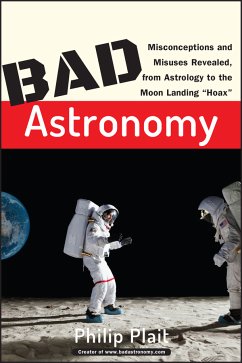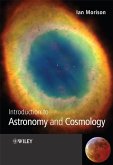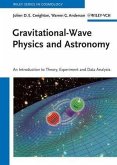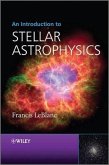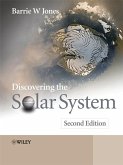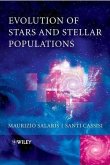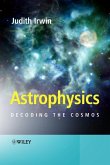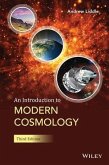Dieser Download kann aus rechtlichen Gründen nur mit Rechnungsadresse in A, B, BG, CY, CZ, D, DK, EW, E, FIN, F, GR, HR, H, IRL, I, LT, L, LR, M, NL, PL, P, R, S, SLO, SK ausgeliefert werden.
"...everything's beautifully explained. He gives the neatest explanation of tides I've ever seen...for that alone, this book should be in every school library on the planet." (New Scientist, 4 May 2002)
"...the book might be a better student introduction than many more sober tomes..." (Times Higher Education Supplement, 7 June 2002)
"Bad Astronomy is a book which is both timely and welcome. I would recommend it without hesitation, and I have no doubt that it will be widely read..." (The Observatory, October 2002)
For skeptics, always fans of science: The first two books in a series devoted to "bad science," Bad Astronomy by Philip Plait and Bad Medicine (Wiley, $15.95) by Christopher Wanjek, may warm even a Scrooge's heart. In short chapters, Plait tackles misperceptions about why the moon looks larger on the horizon and why stars twinkle before moving on, dismantling conspiracy kooks who doubt the moon landing and offering a top 10 list of bad science moments in movie history. Wanjek, a science writer who has also written jokes for The Tonight Show and Saturday Night Live, takes an edgy and funny tack in debunking myths such as humans using only 10% of their brains, the utility of "anti-bacterial" toys and the safety of "natural" herbal remedies, ones often loaded with powerful chemicals. (USA TODAY, December 3, 2002)
"...a good read...Plait's book is readable, entertaining, not exclusively for astronomers, and often very funny..." (Astronomy & Space, June 2003)
"...a great book to dip into..." (Popular Astronomy, January 2004), 20090416
"Der Autor grenzt sich eindeutig und unmissverständlich von Astrologie, Kreationismus und UFOlogie ab. "Der außerordentliche Erfolg des Autors gründet sich auf klare und nachvollziehbare, dabei ehrlich und überzeugend wirkende Erklärungen." Library Journal
"Alles wird wunderbar erklärt - der Erklärung der Gezeiten ist in der Tat die hübscheste, die ich jemals gesehen habe. "Schon aus diesem Grund sollte das Werk in keiner Schulbücherei auf unserem Planeten fehlen." New Scientist
"Dieses Buch könnte die Studenten besser in das Thema einführen als viele andere, ernsthafter angelegte Wälzer." Times Higher Education Supplement
"Bad Astronomy ist ein modernes und sehr willkommenes Buch. Ich empfehle es ohne zu zögern und ich zweifle nicht, dass es einen breiten Leserkreis finden wird." The Observatory

